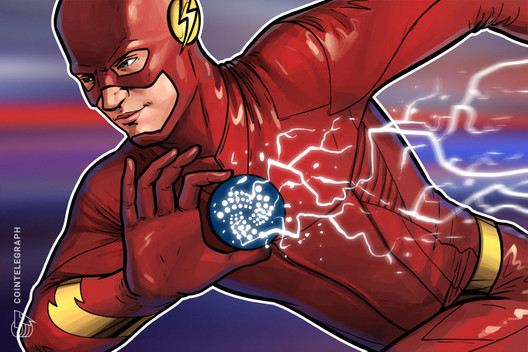Rewards4Earth plans to roll out crypto rewards to 1000 sports clubs in Australia
In a small coastal town just north of Brisbane, Queensland, 20 members of the Coolum Surf Club have been taking part in an initial trial of the Erth Point System, a crypto rewards platform from the Australian company Rewards4Earth.
Doug Flockhart, former CEO of Clubs Queensland, the body for community clubs in the state, spoke to Cointelegraph about how his goal is to integrate the system through over 1,000 community clubs across Australia.
Flockhart said the top professional rugby league competition, the National Rugby League (NRL) “are very keen” on the idea and for Flockhart, it “confirms the capacity of this system to deliver”. The top Australian rules football competition, the Australian Football League (AFL) has also expressed interest he added.
The Coolum Surf Club is a small community surf club that’s part of an industry that’s been battling with waning revenues. It’s hoping the crypto-rewards platform will both help the planet and allow its members and the club to mutually benefit.
Rewards4Earth works by having users create a wallet on an app and link their payment card to use in paying for goods at participating retailers. The incentive for users is cashback rewardsd with the Erth Points cryptocurrency based on a percentage of the amount they spend. Users can nominate their local club or non-profit to receive the same amount of rewards also.
It’s early days yet with just 20 members chosen to trial the proof of concept. “Out of the 20 people that are using the app in the first fortnight, there was $106 generated in fees to go back to the club before we even had businesses signed up in the area,” he said. “That was just those 20 people going shopping at their local supermarket using the app and generating a revenue yield to the club.”
Flockhart said that demonstrates that even a small increase in adoption of the Erth Point system by its 14,000 members would hugely increase its revenue.
“If just 1,000 of their members nominated that club as their chosen beneficiary, the forecasting suggests it would deliver approximately $150,000 in revenue annually to the club just as a consequence of them going about their everyday shopping.”
Businesses are incentivized to join through access to free marketing tools within the platform along with being able to cover their environmental, social and governance (ESG) obligations. They can also accept Erth Points as payment which, like other cryptocurrencies, can be traded on exchanges for fiat.
He added the Erth Point system differs from others as members and the club itself typically only benefit from reward systems when patrons are within the club’s venue. Now the rewards become “more global and more community focused.”
“They could be shopping at a participating retailer in New York and sending money as a consequence of that purchase back to a club here in Australia, in turn also helping to heal the planet.”
Rewards4Earth uses the reward money to fund various environmental causes including plastic and ocean cleanup, endangered species preservation, reforestation initiatives and environmental lobbying.
With enough adoption, Flockhart sees the foundation being well positioned to help with its mission.
“13.2 million Australians are members of clubs, if just 15% of them or 2 million got involved, conservatively that could deliver $3 million a year in passive income to clubs, plus $300 million to the Rewards4Earth Foundation to do work in.”
Adoption was a sticking point for the system given that equates to nearly half of Australia’s population and 50% of club members are 45 years old or older according Flockhart. A key learning from the initial trails suggests it’s “easy to onboard 25 to 40-year-olds”, but older demographics “will be the harder to get on board”.
“We’ll provide the right resources for clubs to be able to provide induction to their members,” he said. “There’s a vested interest for clubs to do that by way of being the beneficiaries. I think that will expedite uptake rather than just waiting for it to happen.”









